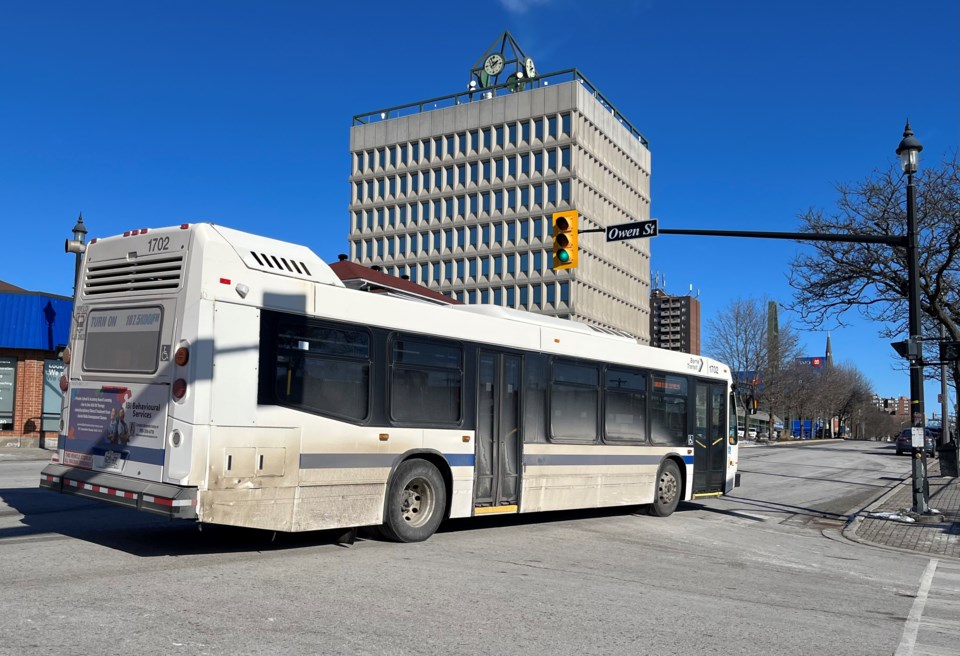Collingwood will receive about $347,000 in gas-tax funding this year, which is slightly less than the $351,000 allocated to the town last year.
It's the local portion of $379.5 million the Ontario government announced Thursday to help 107 municipalities. The funding can be used to extend service hours, buy transit vehicles, add routes, improve accessibility or upgrade infrastructure.
The funding is only sent to municipalities that support public transit.
In the past, Collingwood has used federal gas tax money to build the bus terminal in the Pine Street parking lot, as the federal funds are earmarked for capital projects. Provincial gas tax funding is used to offset operational and maintenance costs of the town's transit system, explained Kris Wiszniak, the town's public works and transit coordinator.
Collingwood's share of the provincial gas tax is also meant to support the Blue Mountains link.
The town did recently overhaul its transit service, adding TransitPLUS as the local accessible transit service. As of January 2023, town staff say the new on-demand system will take over from the conventional transit schedule running currently.
The Town of Collingwood currently has a fleet of seven conventional transit buses and two specialized transit buses. At peak operating times, there are three conventional buses and two specialized buses operating within the municipality.
Nearby, the City of Barrie is receiving nearly $2.3 million in provincial gas-tax funding to help the city operate and improve local transit.
Annual funding for the Ontario gas tax program is determined by the number of litres of gasoline sold in the province during the previous year. Municipalities that support public transit services in their community receive two cents per litre of provincial gas tax revenue collected.
To make up for reduced gas sales due to ongoing recovery from the COVID-19 pandemic, this year’s gas-tax program also includes one-time additional funding of $80 million to help ensure municipalities can continue to support their transit systems.
Elsewhere around the region, the County of Simcoe is receiving $1.375 million in gas-tax funding for public transit, followed by Orillia ($601,178), Bradford West Gwillimbury ($380,170), Innisfil ($372,642), Wasaga Beach ($229,266), Midland ($180,862), Clearview Township ($129,950), New Tecumseth ($125,815), and Penetanguishene ($88,960).
“Public transit is a key driver of economic growth in Ontario, helping people get to where they need to go, whether it is to work, school or run errands,” said Caroline Mulroney, Ontario’s transportation minister. “As more people return to public transit, our government is providing municipalities with the funding they need to accommodate growing ridership, while ensuring they can continue to deliver safe and reliable transit service for people in their communities.”
The 2022-23 gas-tax program will support public transit in 144 communities across the province, representing more than 92 per cent of all Ontarians.
The provincial and federal governments are providing up to $2.65 billion through the Safe Restart Agreement to support municipal transit systems in response to the pandemic. Last December, Barrie received almost $1.1 million through the Safe Restart Agreement, and Collingwood received $81,000.
That funding was to help municipal transit systems address costs related to the COVID-19 pandemic between Feb. 1, 2022 and Dec. 31, 2022. Municipalities were able to use their funding allocations to cover revenue losses, operating expenses and provincial transit priority projects, including fare and service integration, and on-demand transit.
- With files from Erika Engel
